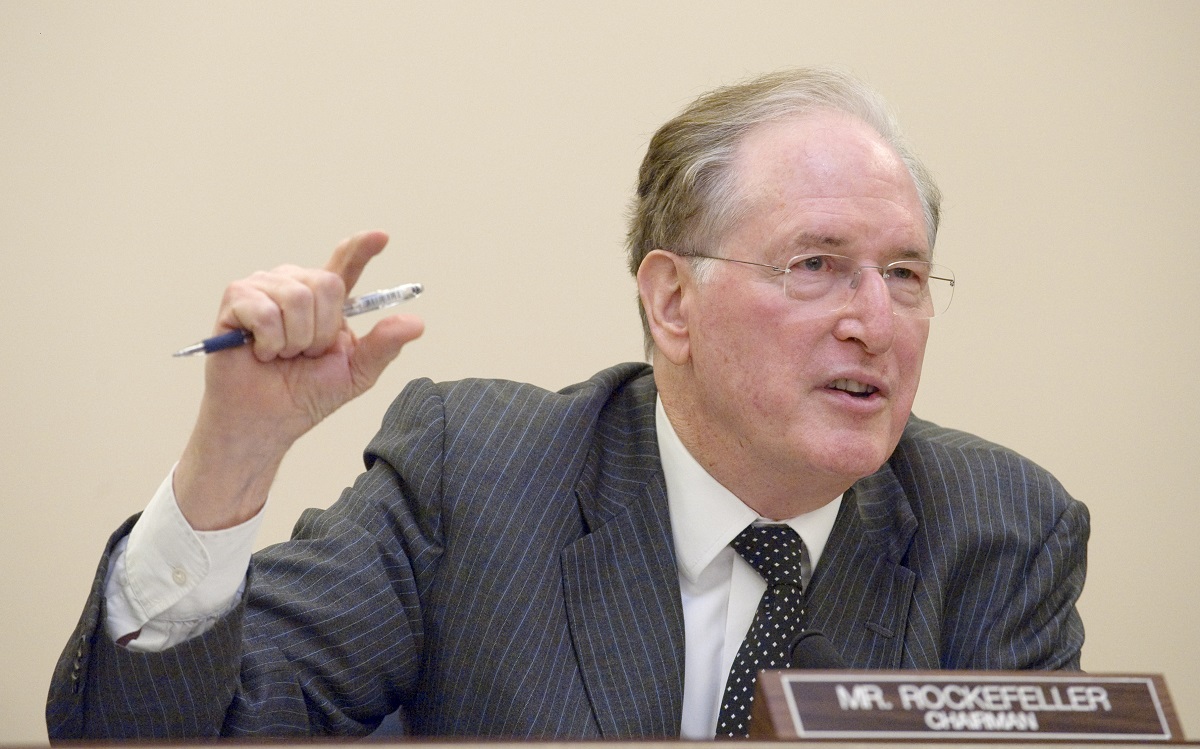This year, open gov activists were hoping to see the passage of a Freedom of Information Act reform bill that would raise the legal standard on government agencies seeking to decline an open records request.
But the FOIA Improvement Act hit a snag late last week: retiring Sen. Jay Rockefeller (D-W.V.) has put a last-minute hold on the legislation, effectively defeating its prospects of making its way through Congress by the end of the year.
Local open gov reporter Alexander Howard reported on Friday that the hold would likely block the bill’s passage for this year. The information came out of a statement made by Sen. Patrick Leahy (D-Vt.) late Thursday. (From Howard’s E Plurinus Unum blog):
In his farewell address, Senator Rockefeller beomaned [sic] the “hyper-partisan politics” in today’s Washington, offering memories of the Senate where compromises led to good policy.
Respectfully, Mr. Rockefeller, to opine thus and then block a bipartisan bill that passed the U.S. House of Representatives unanimously, 410-0, before it was amended, introduced by Senator Leahy and Senator John Cornyn (R-TX), and then unanimously passed by the Senate Judiciary Committee is nothing less than rank hypocrisy.
It’s hard to believe that Senator Rockefeller wants to be known for blocking open government reform at a time of historic lows in trust in government and abysmal public perceptions of the U.S, but that’s exactly what will happen if he doesn’t release this hold.
At this stage, said Howard, the bill needs unanimous Senate support to pass by the end of the year. Without Rockefeller’s opposition, that would still have been possible by Monday.
“The hold effectively means the bill doesn’t move forward and he’s been in the Senate long enough to realize that,” Howard told Technical.ly DC. “He’s basically taking the side of government agencies over people,” he added.
The Federal Trade Commission and other agencies have reportedly lobbied to defeat the bill, fearing that it would increase the administrative and judicial costs of federal agencies and discourage internal discussions.
The FOIA Improvement Act would require agencies to operate under the assumption of open records, unless releasing the information would cause foreseeable harm or violate a federal law.
Here’s how Rockefeller’s office explains it. A staffer said the following in an email:
“[T]he Chairman believes this new foreseeable harm standard would likely have a chilling effect on internal communications and deliberations and could limit internal debating on law enforcement strategy, deter agency employees from providing candid advice, and lower the overall quality of the government decision-making process – all which are absolutely vital to effective law enforcement.”
Open gov activists have complained that these concerns were too little, too late to be believable. Howard called them “very abstract,” while BoingBoing less charitably described Rockefeller’s public statement on Friday as “vague, bullshitty excuses.”
Josh Gerstein of Politico’s take on Rockefeller’s concerns:
The bill’s remaining provisions limit use of privileges to 25 years, so agencies could not invoke concerns about internal candor in order to protect records of historical interest. However, the bill also makes permanent the use of a “foreseeable harm” standard which was adopted by recent Democratic administrations but not by Republican ones. And, as the Rockefeller aide noted, the legislation would make that standard enforceable in the courts.
It’s unclear how judges would implement such a rule. Most generally show a lot of deference to claims of attorney-client privilege, attorney work-product and deliberative process. Indeed, judges already have the right to pierce such privileges in non-FOIA cases and almost never do. Rockefeller and the agencies are arguing that that some judges might not view generalized concerns about candor of agency deliberations as sufficient to amount to the kind of “foreseeable harm” an agency is supposed to identify to justify secrecy
Here’s our “too little, too late” effort to cover this under-reported cog in the wheels of representative democracy.
Looking FWD to the media coverage of British royals’ visit to DC. Monarchy gets more eyeballs than democratic reform: http://t.co/RwjaWZlMJk
— Alex Howard (@digiphile) December 8, 2014
UPDATE: The bill passed in the Senate by late Monday, and might still make it through by year’s end.
BREAKING: Senate Passes Leahy-Cornyn #FOIA Improvement Act
— Sen. Patrick Leahy (@SenatorLeahy) December 8, 2014
Before you go...
Please consider supporting Technical.ly to keep our independent journalism strong. Unlike most business-focused media outlets, we don’t have a paywall. Instead, we count on your personal and organizational support.
3 ways to support our work:- Contribute to the Journalism Fund. Charitable giving ensures our information remains free and accessible for residents to discover workforce programs and entrepreneurship pathways. This includes philanthropic grants and individual tax-deductible donations from readers like you.
- Use our Preferred Partners. Our directory of vetted providers offers high-quality recommendations for services our readers need, and each referral supports our journalism.
- Use our services. If you need entrepreneurs and tech leaders to buy your services, are seeking technologists to hire or want more professionals to know about your ecosystem, Technical.ly has the biggest and most engaged audience in the mid-Atlantic. We help companies tell their stories and answer big questions to meet and serve our community.
Join our growing Slack community
Join 5,000 tech professionals and entrepreneurs in our community Slack today!

The person charged in the UnitedHealthcare CEO shooting had a ton of tech connections

From rejection to innovation: How I built a tool to beat AI hiring algorithms at their own game

Where are the country’s most vibrant tech and startup communities?


